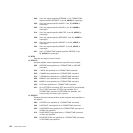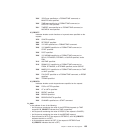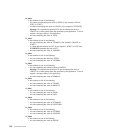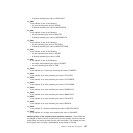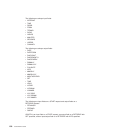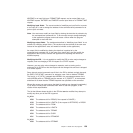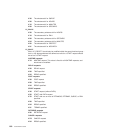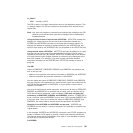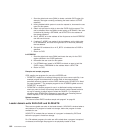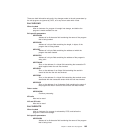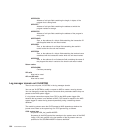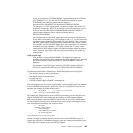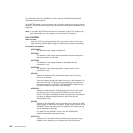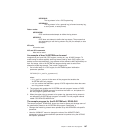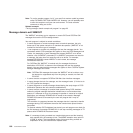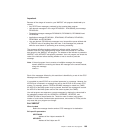1. Scan the global work area (GWA) to locate a suitable CICS region (for
example, the region currently processing the least number of START
requests).
2. Having decided which system to route the request to, increment the use
count for this system.
3. Obtain a 4-byte area in which to store the SYSID for this request. This
can be allocated from the GWA to avoid issuing a GETMAIN. If the area
is obtained by issuing a GETMAIN, set UEPICTOK to the address of
the storage obtained.
4. Set IC_ADDR7 to be the address of the 4-byte area so that XICEREQC
can also use this area.
5. If setting IC_ADDR7 now makes it the last address, set the high-order
bit in the address, and reset the high-order bit in what was previously
the last address.
6. Set the X'02' existence bit on in IC_BITS1 to indicate that a SYSID is
specified.
7. Return to CICS.
In XICEREQC:
1. Scan the global work area (GWA) and locate the entry for the CICS
region specified in the SYSID parameter.
2. Decrement the use count for this system.
3. If a GETMAIN was issued in XICEREQ to obtain an area to hold the
SYSID, issue a FREEMAIN for the address held in UEPICTOK.
4. Return to CICS.
Example and sample programs
CICS supplies two programs for use at the XICEREQ exit:
v DFH$XTSE, supplied as a softcopy listing only (not as a source code file), is an
example program that shows how to modify fields in the command-level
parameter structure passed to all the EXEC interface exits. DFH$XTSE is listed
on page Appendix F, “The example program for the XTSEREQ global user exit,
DFH$XTSE,” on page 877.
v DFH$ICCN is a sample program for use in a distributed routing environment,
where you want to cancel a previously-issued interval control request but have
no way of knowing to which region to direct the CANCEL. For examples of
situations which DFH$ICCN is designed to cope with, see Canceling interval
control requests, in the CICS Intercommunication Guide.
Related concepts
“The interval control EXEC interface sample exit program” on page 23
Loader domain exits XLDLOAD and XLDELETE
There are two global user exits in the loader domain. XLDLOAD is invoked when a
new instance of a program is loaded into storage, before the program is made
available for use.
XLDELETE is invoked after an instance of a program is released by CICS and
before the program is freed from storage.
For LPA-resident programs, the exits are still invoked when a program is acquired
or released, even though the program is not physically loaded or freed.
162 Customization Guide



